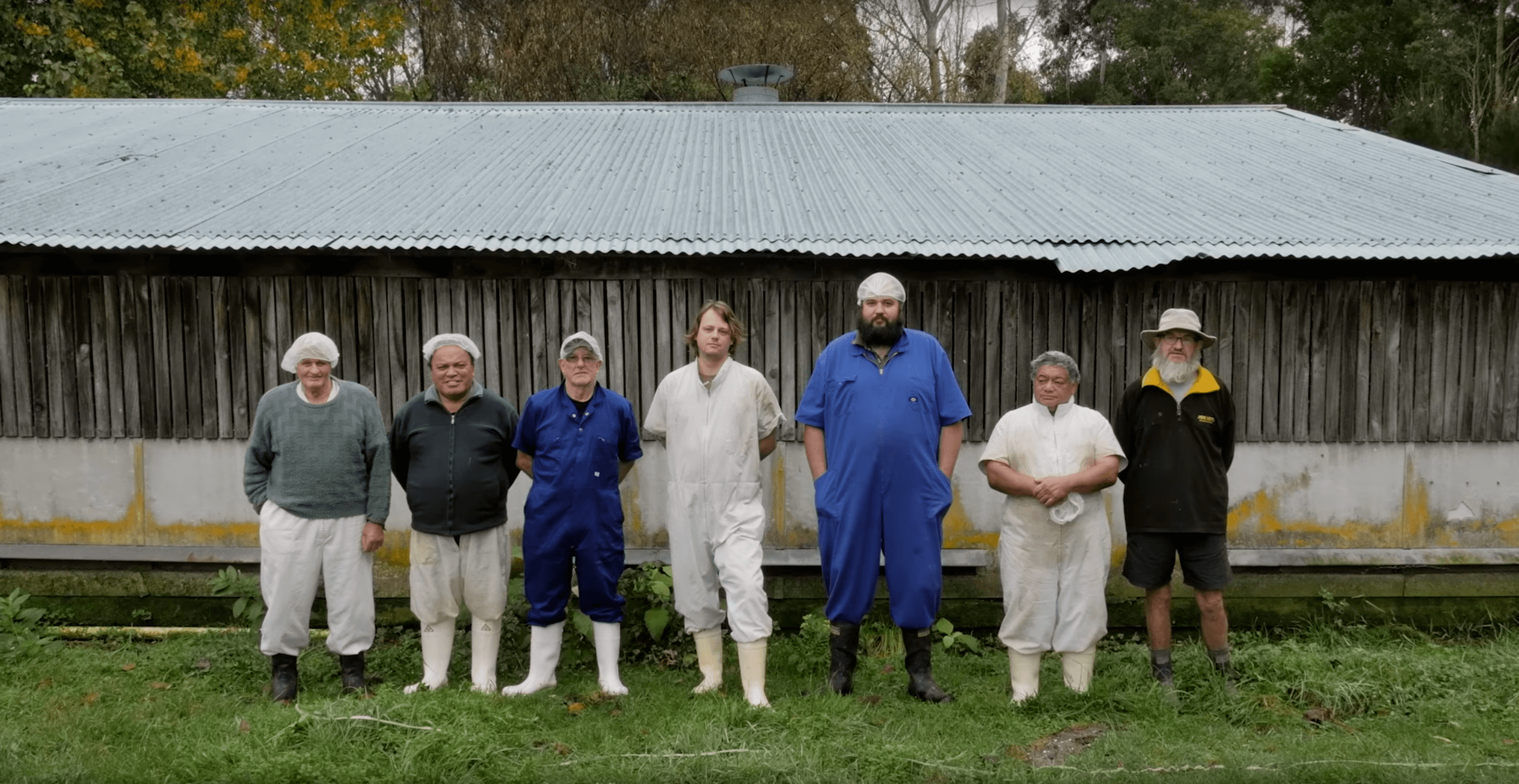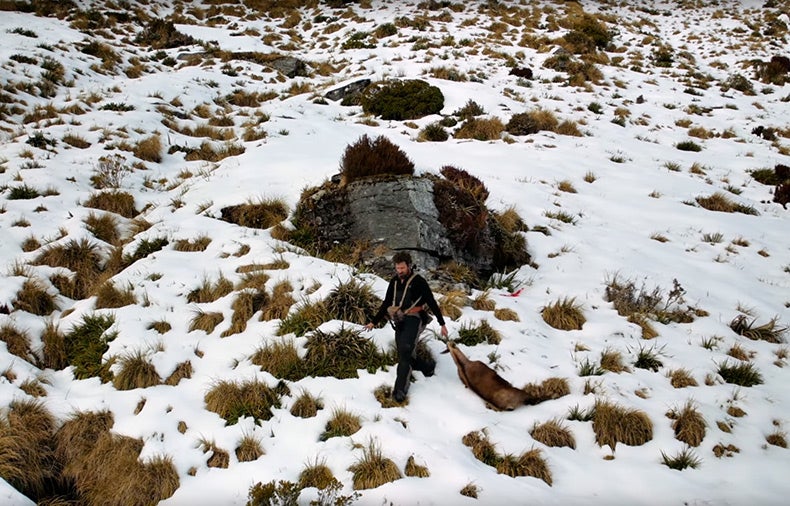Speeding along the isolated road that runs from the tiny town of Haast to the sea, Josh James was exhausted. Amidst two Discovery channel shows, raising three kids and building his own online empire, he’d recently completed filming his part in Meat, a new documentary by director Mike White.
The film, from the executive producer of Grizzly Man and Encounters at the End of the World,
aims to bring viewers closer to the source of their food and the people who produce it. James plays the hunter, a solitary bushman quite literally feeding his family off the land. His gigantic social media presence means he cops a lot of feedback, both positive and negative, around his lifestyle.
Meat is his chance to have his say on the big screen.
Elsewhere, pig farmer Ian takes viewers inside his farm operation which processes more than 400 tonnes of pork a year. A complex look at the multiple facets of our agricultural economy, Ian exposes the intricate and varied connections between food and the quality of life in New Zealand, while demonstrating the realities of life in a high volume farming operation.

Tony, a retired teacher, faces similar quandaries. Despite killing more than 1,000 chickens a week, destined for the rapacious Chinese market, Tony remains philosophical, attempting to balance the needs of his chickens with the demands of exporting animal products.
Jill takes a different approach. A one-woman farming industry, Jill raises beef and lamb for the international market on her more traditional farm. With views on everything from tail docking to international terrorism, she’s unapologetically herself, and a completely open book.
These characters, chosen specifically over a period of three months by White, provide an unflinching look at the realities of living and dying in a nation dominated by agriculture. Perhaps a spiritual successor to White’s first effort in the genre, I Kill, Meat is neither a pro-carnivore nor pro-vegan film, and combatants from both sides of the debate will likely find ammunition within.
But while White insists he never set out to create propaganda, and the film’s marketing follows the same line - “Resisting simple answers or judgments, this is a film about food, focused on the personalities behind it, and their ideas and feelings about the work that sustains them,” - is it really possible to create such a balanced film in the medium of documentary?
Through being in a position to choose what is shown and what isn’t, an inherent bias exists despite the public statements of the director. It’s a qualm faced by anyone in documentary, and White certainly shouldn’t be penalised for it, but it would be worth remembering that he grew up on a farm, and has shot sympathetic footage of those involved in the industry before.
Regardless, with a distribution deal in North America, Meat is going global, just like its subject matter. Whether it’ll be to your taste remains to be seen.

